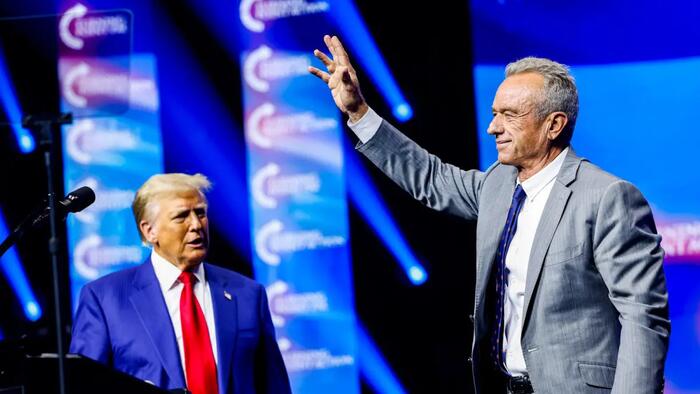Robert F. Kennedy Jr. is currently on a mission to garner legislative support while simultaneously being appointed as Secretary of Health and Human Services (HHS) under President-elect Donald Trump. His initiatives align closely with the newly formed Congressional Make America Healthy Again (MAHA) caucus, established by Republican senators including Roger Marshall, Rick Scott, Ron Johnson, Tommy Tuberville, and Cynthia Lummis. This caucus aims to foster collaboration among local, state, and federal health officials, focusing on various health campaigns to raise nutritional awareness, combat chronic diseases, and improve access to affordable, nutrient-dense foods. The members are committed to improving health outcomes by prioritizing nutrition and enhancing primary care access, enabling a “Food is Medicine” approach to healthcare.
As a seasoned environmental lawyer and health advocate, Kennedy has leveraged his previous presidential campaigns to underscore crucial health issues. He suspended his campaign last August to endorse Trump and has since prioritized substantial reforms within the HHS. His focal points include curbing corporate influence over health agencies and advocating for the removal of harmful chemicals in the food supply. The HHS oversees 13 significant agencies, including the CDC, FDA, and NIH, which are pivotal in managing public health directives. Kennedy’s overarching aim is to tackle chronic diseases, improve children’s health, and counteract corporate interests infiltrating public health policies.
Kennedy is scheduled to appear before the Senate Finance Committee in January for confirmation hearings. With Republicans securing a 53-47 majority in the Senate, the prospects for his confirmation appear favorable. Notably, several Republican senators have publicly expressed their support for Kennedy, particularly in light of shared sentiments regarding the detrimental effects of corporate influence on health policy. Kennedy has openly articulated his intention to dismantle the perceived “capture” of agencies like the FDA and CDC by private interests, advocating instead for transparency and accountability within these organizations.
Public health proposals from Kennedy have elicited both praise and criticism. While Republican lawmakers have endorsed his plans for reform, Democrats and public health officials have raised concerns about his stances on various health measures. Kennedy’s positions, particularly regarding nutrition and pharmaceuticals, reflect a departure from conventional health narratives. He champions holistic health approaches, including promoting raw milk and natural remedies, while simultaneously calling for stricter regulations on pharmaceutical advertising and advocating for informed consent surrounding vaccinations.
Kennedy’s outlook on vaccines is particularly nuanced. He has always maintained that he does not oppose vaccines outright, emphasizing instead the importance of informed choice. He insists on the necessity of science-based safety studies to ensure public confidence in vaccination programs. His advocacy for transparency can be seen as a movement towards empowering individuals, allowing them to make educated decisions regarding their health. As various senators familiarize themselves with his platform, Kennedy’s approach to vaccine safety is generally regarded positively by Republican leaders, who appreciate his commitment to autonomy and informed consent.
As the MAHA caucus unfolds, its members, including Scott and Lummis, have voiced their ambitions for health improvements across America. Their collaboration with Kennedy appears poised to impact federal health policies significantly. Scott highlights the importance of health advocacy from birth, while Lummis echoes sentiments regarding food safety and chemical transparency. Collectively, the MAHA caucus and Kennedy’s appointment suggest a potential shift in health policy that emphasizes preventive care, nutrition, and informed choice in healthcare decisions. With ongoing discussions and further meetings scheduled, Kennedy’s influence in shaping a new health landscape under the upcoming Trump administration could prove pivotal.

